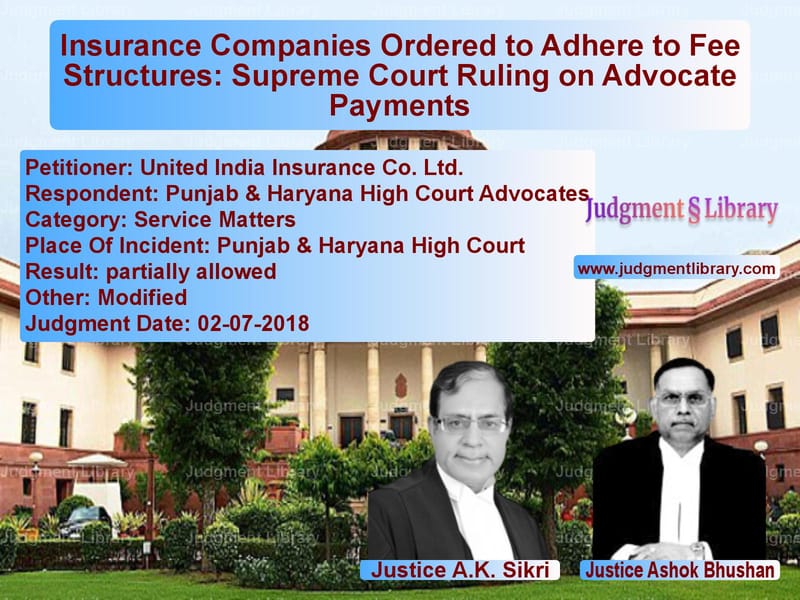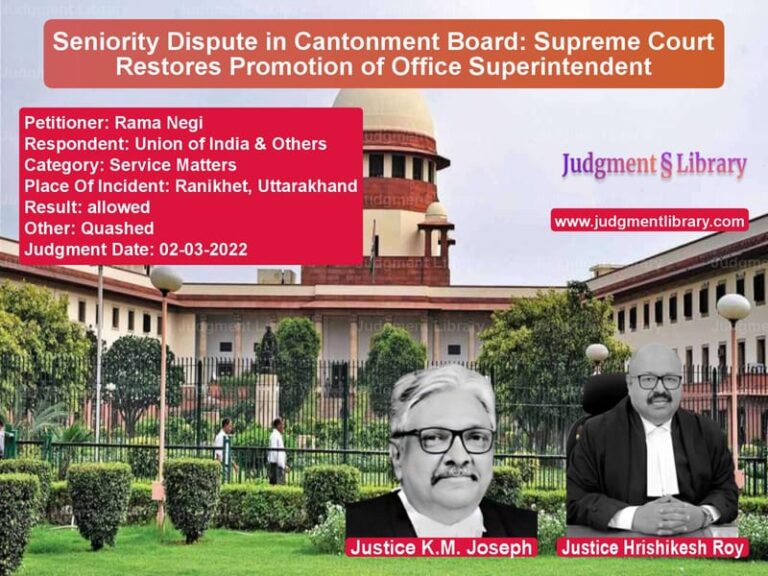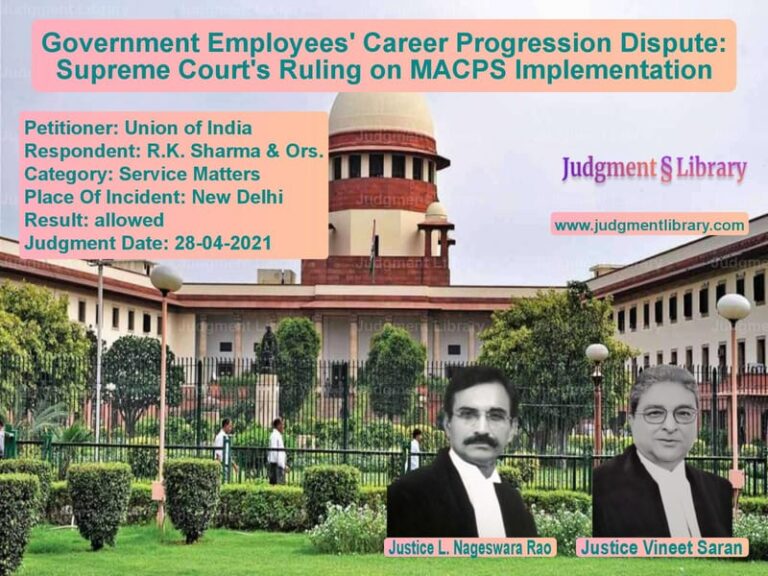Insurance Companies Ordered to Adhere to Fee Structures: Supreme Court Ruling on Advocate Payments
The Supreme Court of India, in a landmark ruling, addressed the issue of fee payments to advocates empanelled by public sector insurance companies. The case, arising from a judgment of the Punjab and Haryana High Court, involved four major insurance companies – United India Insurance Co. Ltd., Oriental Insurance Co. Ltd., New India Assurance Co. Ltd., and National Insurance Co. Ltd. – regarding payment structures for their advocates.
Background of the Case
The dispute began when an injured individual, seeking compensation for a motor accident, filed an appeal (FAO No. 2604 of 2013). During the hearing, the High Court noticed the absence of representation from the insurance companies. This prompted a suo motu public interest litigation (PIL) to investigate whether insurance companies were deliberately delaying cases by not assisting their advocates with fair fee payments.
Legal Issues Raised
1. Public Interest Litigation (PIL) Jurisdiction
Was the High Court justified in taking suo motu cognizance of an issue that appeared to be a contractual dispute between insurance companies and their empanelled advocates?
2. Adherence to GIPSA Fee Structures
Should insurance companies be bound by the General Insurers’ (Public Sector) Association (GIPSA) fee schedules for advocates?
3. Interest on Delayed Payments
Should insurance companies be required to pay interest on overdue advocate fees?
Arguments by the Parties
Arguments by the Insurance Companies
- The matter was purely contractual and should not have been taken up as a PIL.
- GIPSA, being a non-statutory body, could not enforce fee schedules.
- Advocates had been paid as per existing policies, and disputes, if any, should be resolved contractually.
Arguments by the Advocates
- Insurance companies were deliberately delaying payments, causing financial distress.
- GIPSA fee schedules should be binding as insurance companies had voluntarily agreed to them.
- Failure to pay fair fees was hindering the justice system and affecting litigants.
Supreme Court’s Observations
1. PIL Jurisdiction Justified
The Court held that the High Court had the jurisdiction to take suo motu cognizance, given that non-payment of fees was affecting judicial administration. The judgment stated:
“The issue pertains to access to justice, and if lawyers representing public sector insurance companies are not paid adequately, it hampers the entire judicial process.”
2. GIPSA Fee Schedules Must Be Followed
The Court ruled that insurance companies must adhere to the GIPSA fee schedules of 2009 and 2014, as these were the agreed frameworks. The judgment noted:
“It is evident that the insurance companies had voluntarily adopted the 2009 and 2014 fee structures, and deviation from the same cannot be justified.”
3. No Interest on Delayed Payments
The Court overturned the High Court’s ruling requiring interest payments on overdue advocate fees, stating:
“While fairness demands prompt payments, the imposition of interest was not warranted given the lack of clear statutory obligation.”
Final Judgment
The Supreme Court’s final ruling included the following directives:
- Insurance companies must follow the GIPSA fee schedules of 2009 and 2014.
- The requirement to pay interest on delayed fees was set aside.
- Past payments made as per the 2004 schedule were deemed final.
- The PIL was disposed of, with instructions for better implementation of fee payments.
Implications of the Judgment
This ruling has several implications for the legal and insurance sectors:
- Ensures Fair Payment to Advocates: Public sector insurance companies must adhere to standard fee structures.
- Strengthens Judicial Accountability: PIL jurisdiction extends to cases affecting legal representation.
- Limits Financial Burden on Insurance Companies: Removal of interest payments on delayed fees reduces liability.
Conclusion
The Supreme Court’s decision strikes a balance between ensuring fair compensation for advocates and protecting insurance companies from excessive financial burdens. By mandating adherence to GIPSA fee structures while removing the interest liability, the Court has set a precedent for handling contractual disputes within the justice system.
Petitioner Name: United India Insurance Co. Ltd..Respondent Name: Punjab & Haryana High Court Advocates.Judgment By: Justice A.K. Sikri, Justice Ashok Bhushan.Place Of Incident: Punjab & Haryana High Court.Judgment Date: 02-07-2018.
Don’t miss out on the full details! Download the complete judgment in PDF format below and gain valuable insights instantly!
Download Judgment: United India Insuran vs Punjab & Haryana Hig Supreme Court of India Judgment Dated 02-07-2018.pdf
Direct Downlaod Judgment: Direct downlaod this Judgment
See all petitions in Employment Disputes
See all petitions in Public Sector Employees
See all petitions in Contractual Employment
See all petitions in Judgment by A.K. Sikri
See all petitions in Judgment by Ashok Bhushan
See all petitions in partially allowed
See all petitions in Modified
See all petitions in supreme court of India judgments July 2018
See all petitions in 2018 judgments
See all posts in Service Matters Category
See all allowed petitions in Service Matters Category
See all Dismissed petitions in Service Matters Category
See all partially allowed petitions in Service Matters Category







